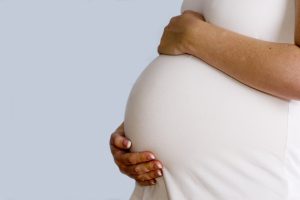
New medical advancements might offer some women a second chance at becoming pregnant. Some women reach menopause much earlier in life, and are unable to become pregnant. Around 1 per cent of women suffer from a condition called primary ovarian insufficiency which brings on menopause at a very young age. Scientists have found a way to wake up dormant follicles, and the experimental technique has been tested on a group of infertile woman who reached menopause at around 3o years old.
Of the 13 women treated, one has given birth, and another is pregnant. There are overwhelmingly high numbers, but it sure proves that there are possibilities and with more research, numbers within trials could rise.
Until now the only option available to women with this form of infertility has been to accept IVF treatment using donor eggs, which means raising a child with another biological mother.
The researchers now plan to see if the technique can help other categories of women, including those affected by cancer treatment, and who become infertile between the ages of 40 to 45.
To read more, click here.

Freezing eggs was always presented as a last option to women but now it’s quickly becoming a perfectly normal procedure that is being encouraged by many. Imagine being your own egg donor when you are ready to conceive. With women postponing becoming mothers, this might just be the right option for some. But the longer a woman waits to undergo IVF, which is the procedure used, the smaller the chances are of becoming pregnant. Those figures do not change. Scientists are now taking it a step further and researching how to screen eggs for chromosomal normality to better achieve successful pregnancies.
In 2006, a landmark trial at NYU Langone Medical Center found that frozen eggs could be used to achieve the same pregnancy rates as fresh eggs, used for in vitro fertilization, using egg and sperm to create an embryo in a lab that is then transferred into a woman’s uterus for pregnancy. “So all of a sudden now, it became an option,” says Jamie Grifo, lead author of the study and program director of the NYU Fertility Center. His team is now researching how to screen eggs for chromosomal normality to better achieve successful pregnancies.
Whether using fresh or frozen eggs, both procedures use IVF, which requires hormone injections that enable a woman to produce multiple eggs each month, which are extracted for fertilization. Frozen eggs require a process called intracytoplasmic sperm injection, in which a single sperm is injected into the egg.
The success rates of producing a baby from one round of IVF is about 60 percent at age 30, 27 percent at age 40 and drops to 6 percent between ages 40 and 44, says Grifo, attributing the declining success rates to the fact that a woman’s eggs develop abnormalities with age. And therein lies the hope of this new technology. “Egg freezing is a way to be your own egg donor,” Grifo says.
As to the cost of the process, the procedure plus doctor’s visits, medication and egg storage can run from $5,000 to $20,000, depending on the lab and the medical practice.
Source







